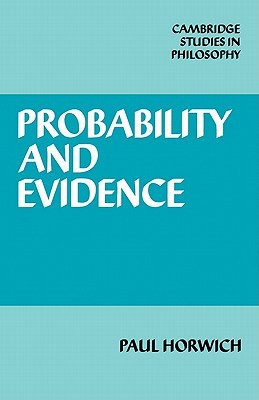
- We will send in 10–14 business days.
- Author: Paul Horwich
- Publisher: Cambridge University Press
- ISBN-10: 0521283361
- ISBN-13: 9780521283366
- Format: 14 x 21.6 x 0.9 cm, minkšti viršeliai
- Language: English
- SAVE -10% with code: EXTRA
Reviews
Description
In this volume, which was originally published in 1982, Paul Horwich presents a clear and unified approach to a number of problems in the philosophy of science. He diagnoses the failure of other attempts to resolve them as stemming from a too-rigid, all-or-nothing conception of belief, and adopts instead a Bayesian strategy, emphasising the degree of confidence to which we are entitled the light of scientific evidence. This probabilistic approach, he argues, yields a more complete understanding of the assumptions and procedures characteristic of scientific reasoning. It also accounts for the merits of simplicity, severe tests and surprising predictions, and provides a way in which the dispute between the realist and instrumentalist views of science might be resolved. The result is a crisp, well-focused contribution to the philosophy of science. The elaboration of an important conception of probability will stimulate anyone with an interest in the field.
EXTRA 10 % discount with code: EXTRA
The promotion ends in 22d.10:27:05
The discount code is valid when purchasing from 10 €. Discounts do not stack.
- Author: Paul Horwich
- Publisher: Cambridge University Press
- ISBN-10: 0521283361
- ISBN-13: 9780521283366
- Format: 14 x 21.6 x 0.9 cm, minkšti viršeliai
- Language: English English
In this volume, which was originally published in 1982, Paul Horwich presents a clear and unified approach to a number of problems in the philosophy of science. He diagnoses the failure of other attempts to resolve them as stemming from a too-rigid, all-or-nothing conception of belief, and adopts instead a Bayesian strategy, emphasising the degree of confidence to which we are entitled the light of scientific evidence. This probabilistic approach, he argues, yields a more complete understanding of the assumptions and procedures characteristic of scientific reasoning. It also accounts for the merits of simplicity, severe tests and surprising predictions, and provides a way in which the dispute between the realist and instrumentalist views of science might be resolved. The result is a crisp, well-focused contribution to the philosophy of science. The elaboration of an important conception of probability will stimulate anyone with an interest in the field.


Reviews